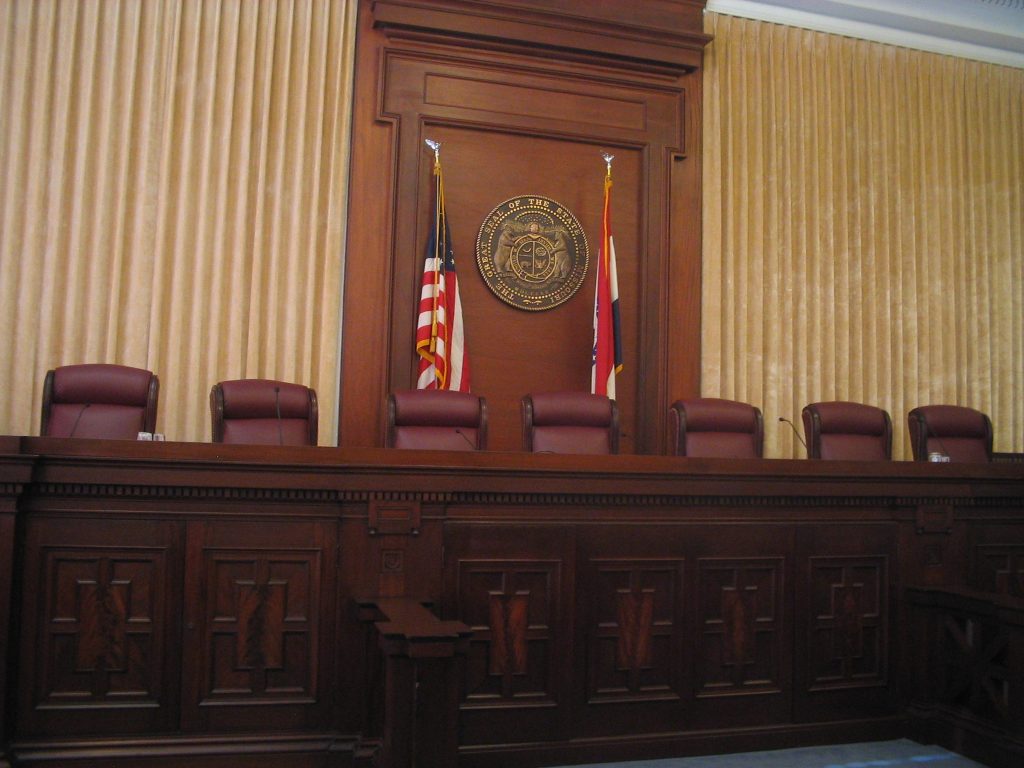
In late February, the Missouri Supreme Court extended legal protections with two separate rulings in two different directions to the LGBT community. One of the cases involved employee rights, and the other addressed access to public facilities by transgender students.
In the first case, Lampley v. Missouri Commission on Human Rights, Harold Lampley contended that he faced discrimination in his workplace – the Missouri Department of Social Services’ Child Support Enforcement Division – because he is gay. Lampley argued that this harassment was based on his nonconformity to expectations of male behavior and that he received a retaliatory poor evaluation after complaining about the treatment.
The court held that those who faced employment discrimination based on not conforming to gender stereotypes have cause to file legal suit. As such, they established merit and standing for Lampley to file suit against his former employer.
The second case, R.M.A. v. Blue Springs R-IV School District, involves a transgender student referred to only as R.M.A. in court documents. R.M.A. had identified as male since fourth grade, and his school district had taken certain steps to conform with his gender identity but refused to take others. They changed his school records to reflect his name change and permitted him to take his physical education classes with males and play sports on male teams but barred him from access to male facilities according to court documents.
The case was initially dismissed in the circuit court, but the student appealed the dismissal with the high court ultimately deciding that it should proceed in the lower court, holding that the case showed
The actions by the Supreme Court help clarify that the high court is at least willing to explore the argument that the Human Rights Act does extend, at least to a limited degree, to sexual orientation and gender identity in a major victory for LGBT rights within Missouri.
After the results of both rulings, Missouri’s ACLU, which issued amicus curiae briefs in both cases, issued a statement saying that the court’s rulings were a major step forward in removing the opacity of Missouri’s anti-discrimination laws.
The high court’s rulings mark a significant victory for transgender rights, in a time where – on both the national and state level – they are under considerable attack.
Notably, President Trump has enacted a ban on transgender people serving in the U.S. military – a process that faced its own court challenges. On the issue of the ban, the U.S. Supreme Court ultimately ruled in a 5-4 decision to allow the ban to go forward.
The administration has also sought to define gender as being determined legally by biology at birth. The Department of Education will no longer pursue complaints filed on transgender students’ access to bathrooms and issued guidelines to federal prisons to sort prisoners based on biological sex.
The Trump administration’s actions build upon a multitude of laws perceived as discriminatory against transgender people that were enacted by states during the Obama presidency, most infamously North Carolina’s so-called “bathroom bill.” These laws typically restrict the public facilities people are allowed to use based on biological sex or gender at birth –
The federal government’s actions have spurred numerous states to increase protections for transgender citizens at the state-level, but numerous organizations that do not support transgender rights have also taken it as a signal to increase their activities as well.
Missouri stands at the heart of this national fight. The state legislature has been particularly intransigent about offering protections from discrimination to LGBT citizens. It was considered a massive victory last year when a bill that would provide LGBT citizens who were facing discrimination a legal recourse received a committee vote in the General Assembly.
Before these decisions were made by the high court, it was thought that the Missouri Humans Rights Act did not extend LGBT protections. The willingness of the court to rule in the ways it has may suggest that – similar to the federal level on same-sex marriage – the judicial branch, not the legislative, will ultimately secure those protections.
